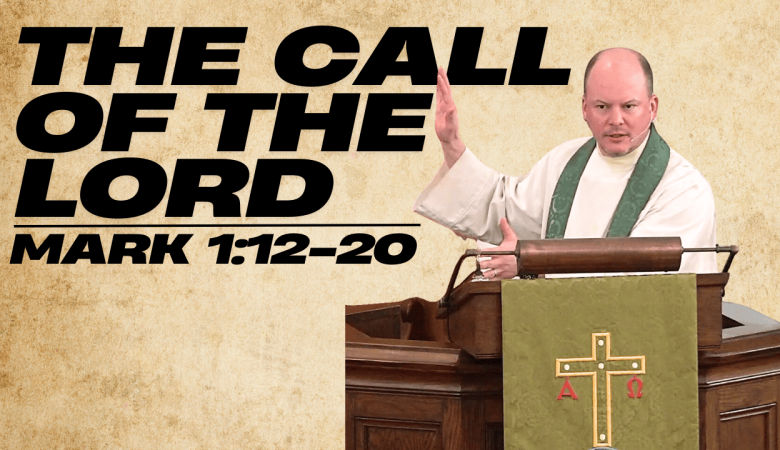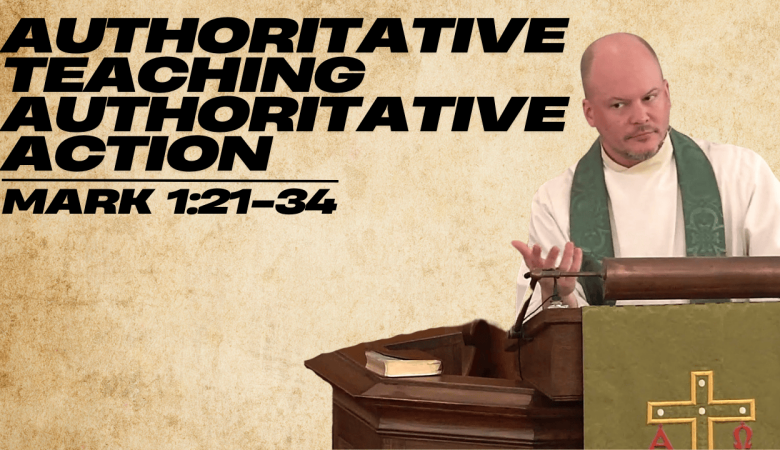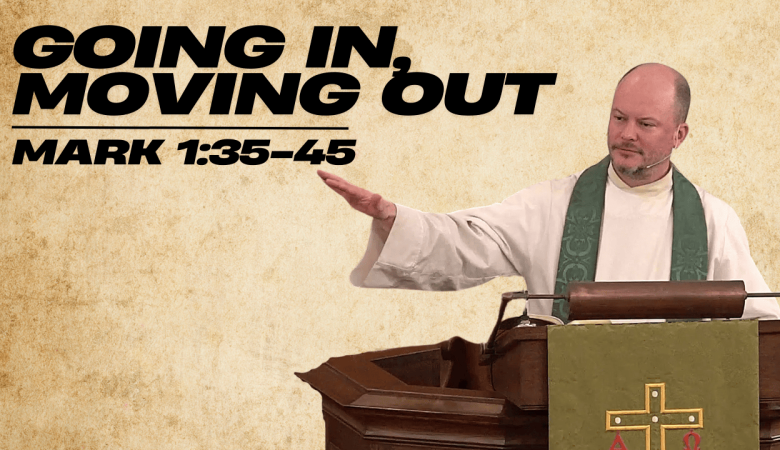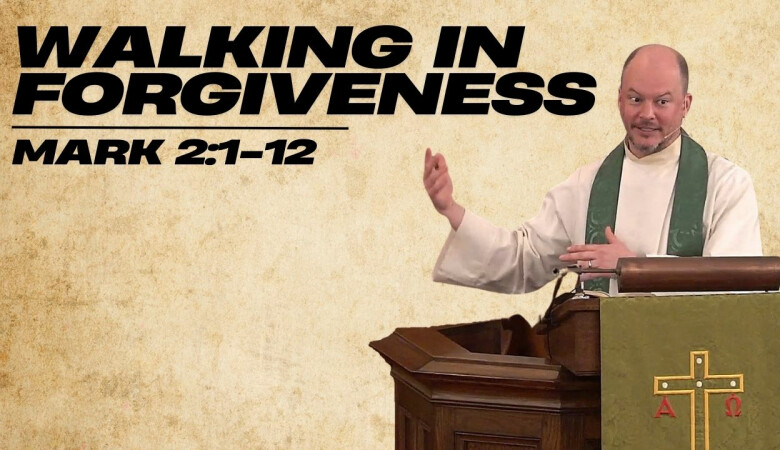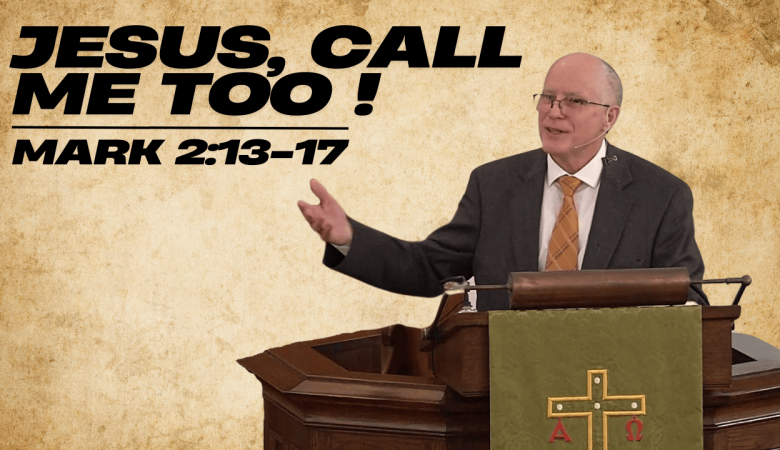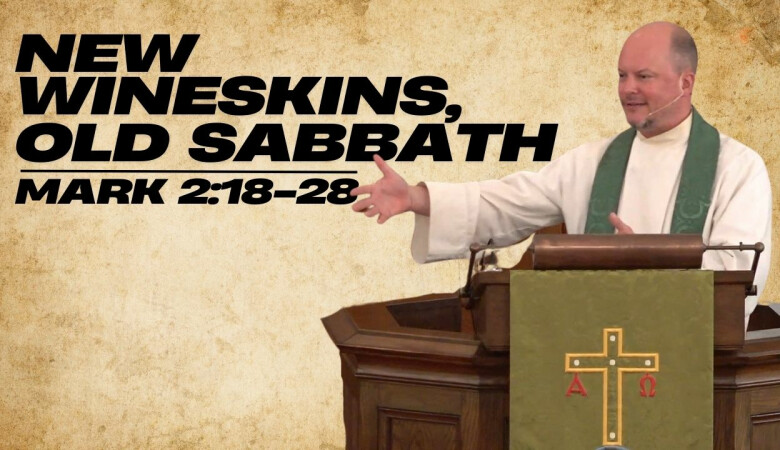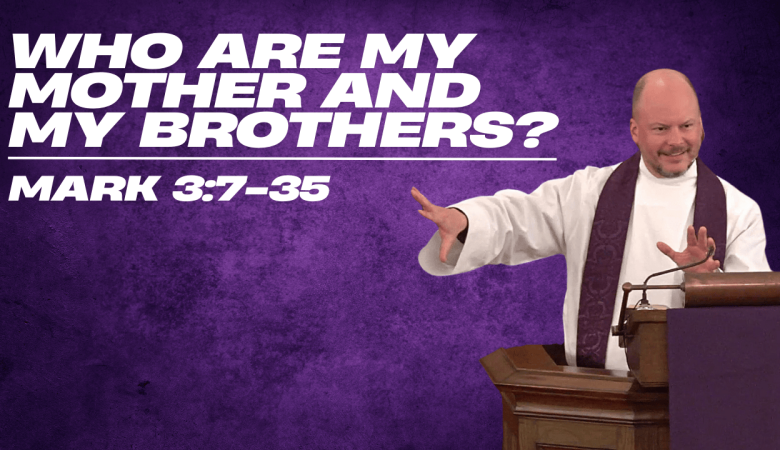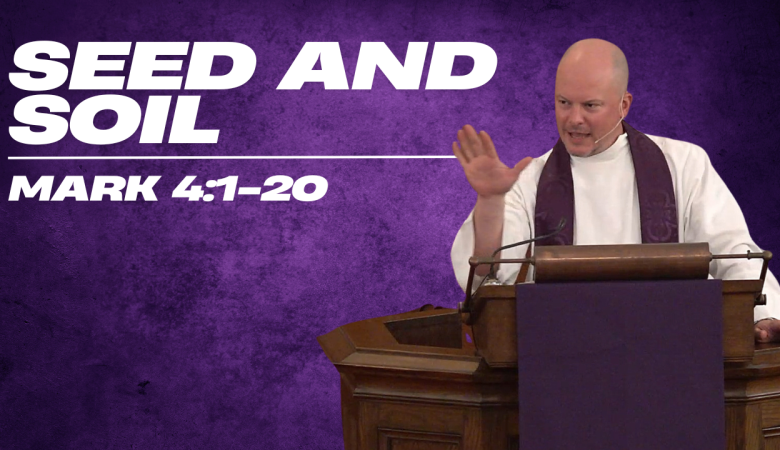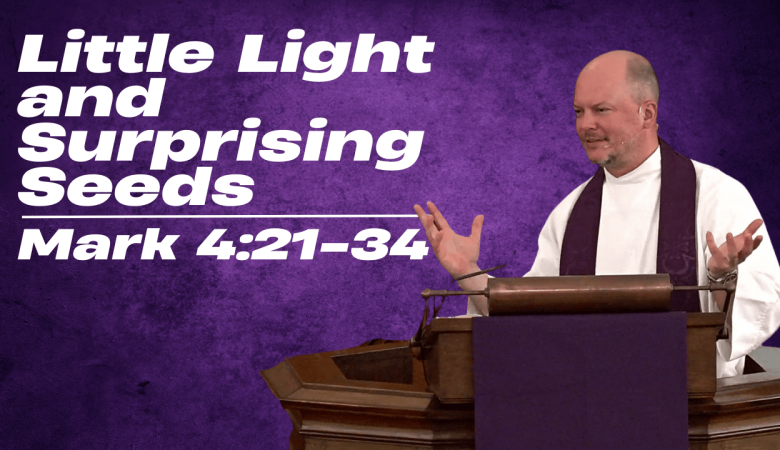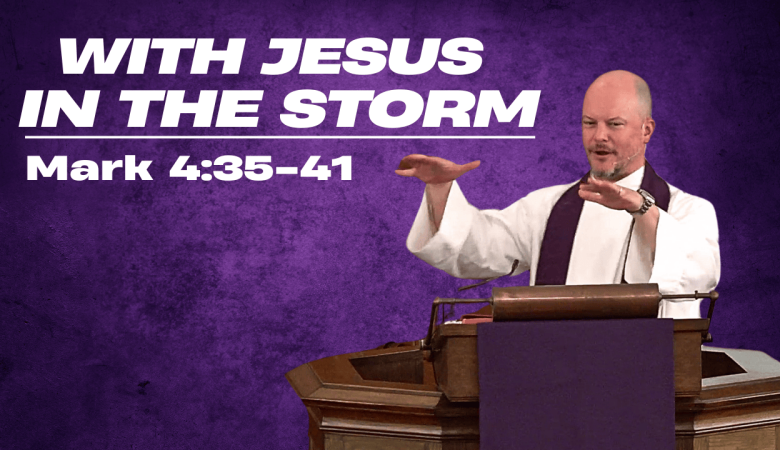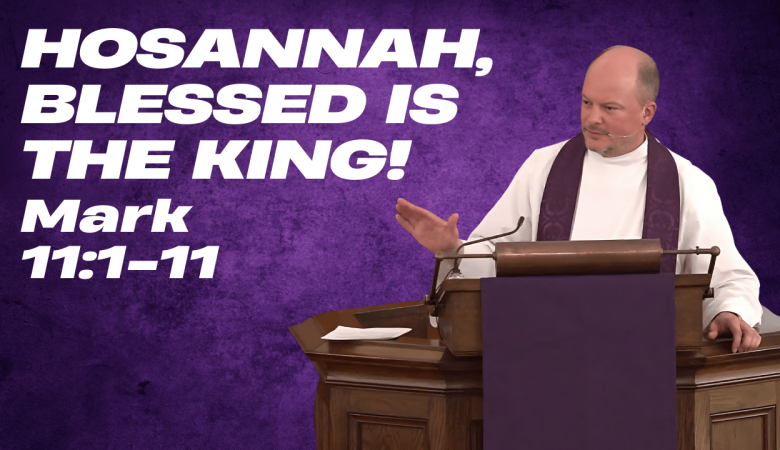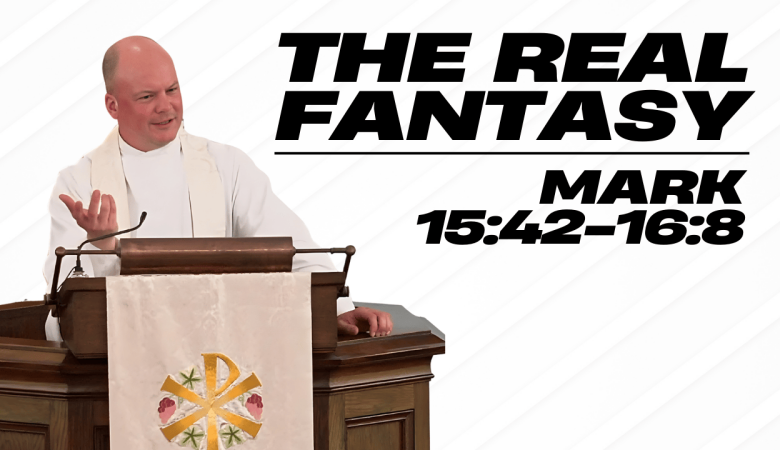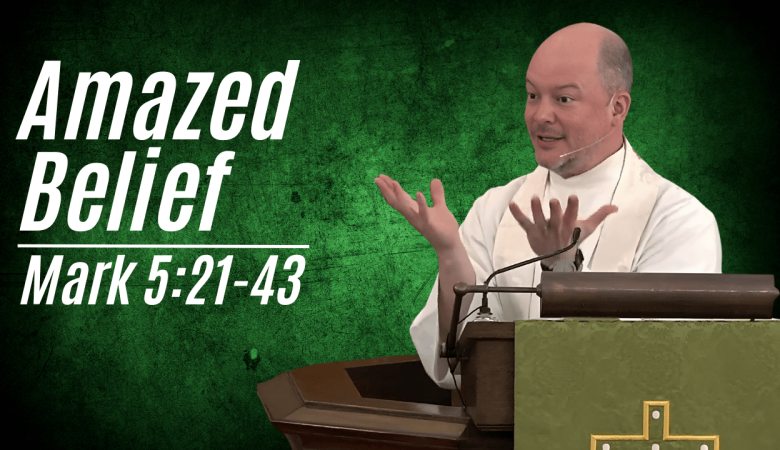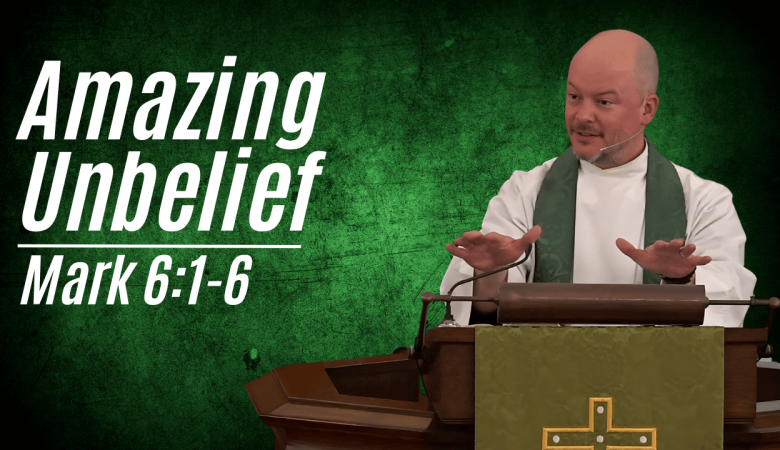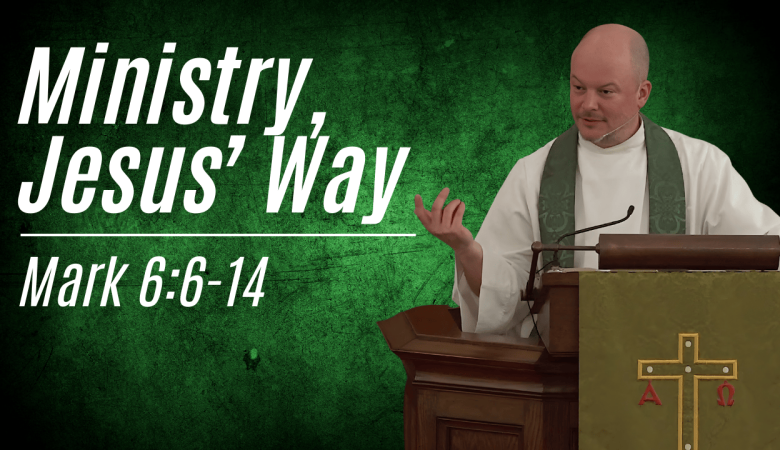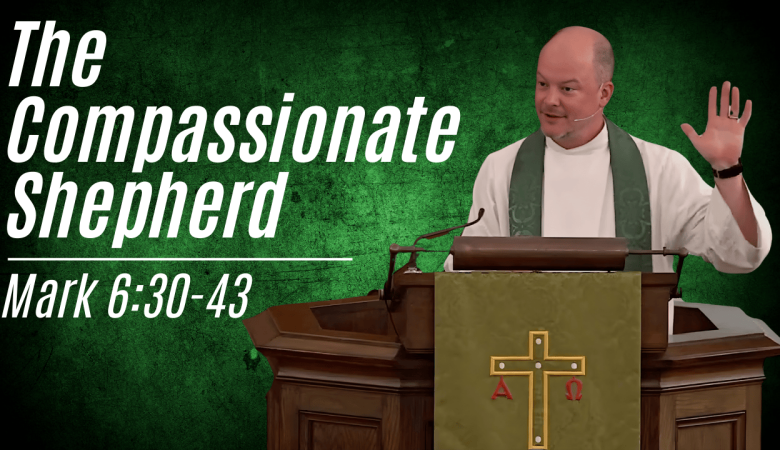Series: The Gospel of Mark
How Much the Lord has Done!
April 06, 2025 | Peter Rowan
Passage: Mark 5:1-20
Summary
In all three of the synoptic gospels, Mark, Matthew and Luke, the story of Jesus calming the storm and of his healing the man with the demon are put right right together. These accounts strike a cord with us because they a echo in our own lives. We often find ourselves caught in a storm, often of our own making, and in a real sense the man with a demon is very much like you and I without Jesus.
An Jesus is Lord of all. He is Lord of the physical, the psychical and the spiritual. All of it. He has authority over all of the chaos. But the responses? Well, fear. Fear that led to acceptance and fear that led to rejection.
Transcript
In all three of the synoptic gospels, Mark, Matthew and Luke, the story of Jesus calming the storm and of his healing the man with the demon are put right right together. He is Lord. He is Lord of all. He is Lord of the physical, the psychical and the spiritual. All of it. He has authority over all of the chaos. But the responses? Well, fear. Fear that led to acceptance and fear that led to rejection.
One of the great stories that we find in the Bible is the story of the conversion of Paul. Paul, many of you know, would go on to write 13 of the 27 books of the Bible and be the great missionary leader to the Gentiles in the early church. His conversion story actually gets more words written about it in the book of Acts than the story of the resurrection combined in the Gospels.
Before his conversion, Paul’s name was Saul. He was a leader in the Jewish religious community. In Galatians 1 he says, “I was advancing in Judaism beyond many of my own age among my people, so extremely zealous was I for the traditions of my fathers.” Yet, he also says that he “persecute the church of God violently and tried to destroy it.” In Acts 26 he says that he was “convinced that I ought to do many things in opposing the name of Jesus of Nazareth.” So, he locked up the saints in prison and he cast his vote to have many of them put to death. He tells us that “in raging fury against them I persecuted them even to foreign cities.”
It was on the way to further that persecution of Christians in Damascas that Jesus met him in a blinding light. In all three accounts of the story in the book of Acts, Jesus says to him, “Saul, Saul, why are you persecuting me?” And right then are there he meets Jesus, who is full of grace and compassion. And to this man who had rejected him and persecuted his people he gives a new name and a new heart and a new life and a new mission. And Paul himself becomes the great lover not only of Christ but of those who don’t yet know Jesus and of those who were a part of the very people he hated and sought to kill, the church of Jesus.
We have this story in Mark 5 of this demon possessed man. Like I said, it’s put right alongside the story of Jesus calming the storm. And even some of the language is similar. Maybe you noticed that the people who see what Jesus had done with this man were “filled with fear”. That’s that same “phobia” word that the disciples were filled with after Jesus calmed the storm in that last story. Jesus is Lord of all.
But this morning I want us to take this story as a paradigm of sorts for Christian conversion. The power of Christ over the soul of men.
First, we need to see the power of sin and Satan
In a very real sense, this man is you and I without Jesus.
I know, I am aware, that the Bible often doesn’t often give us these intense glimpses into the spiritual realm. Here and there, at best, it does. But the Bible and even the gospels are not always showing us this kind of demon-possession. There are miracles, no doubt, through the Bible at various times, but it seems as though we can go centuries without these intense glimpses into the battles for our souls that is taking place here in this passage. But even so, one of the things that the Bible says fairly clearly is that outside of the work of Jesus, we are all this man. We are all under the power of sin and Satan.
Hear me out. Some of you may be visiting church today for the first time in a long time and you are wondering why in the world you came if this is what you are going to hear. Others of you are here regularly maybe and you want to take the Bible as God’s word, but you might think this kind of thing is a bit much, that it is a bit much to say that we are all under the power of sin and Satan outside of the work of Jesus.
Let me address first the church folk first with two arguments from the gospels and one from the epistles.
Later in Mark chapter 8, the disciple Peter is called Satan by Jesus. Maybe you remember the passage. Jesus is telling how he must suffer and die and on the third day rise form the dead and then Peter takes him aside and he begins to rebuke Jesus. And Jesus says “Get behind me, Satan! For you are not setting your mind on the things of God, but on the things of man.” It’s Satan’s way or it’s my way. Outside of the power of Christ, you are under the power of sin and Satan.
In John chapter 8 Jesus is talking to the religious leaders, the people that “knew” God, that had all of their doctrine in order and all of that. They were experts in the Bible. Jesus tells them this in verse 42:” If God were your Father, you would love me, for I came from God and I am here. I came not of my own accord, but he sent me.” And then in verse 44 he says, “You are of your father the devil, and your will is to do your father’s desires.”
Outside of the power of Christ, you are under the power of sin and Satan.
My argument from the Epistles comes from our Ephesians reading. There we heard this: “And you were dead in the trespasses and sins 2 in which you once walked, following the course of this world, following the prince of the power of the air, the spirit that is now at work in the sons of disobedience— 3 among whom we all once lived in the passions of our flesh, carrying out the desires of the body and the mind, and were by nature children of wrath, like the rest of mankind.”
You see, when we look at this man who they came across on the other side of the Sea of Galilee, we are invited not just to look at his state under the destructive power of the demon legion, but rather we are to see our own state. in his bondage, we are to see our bondage. The Bible teaches us that unless we are subject to Christ’s rule, then we are subject to the rule of Satan.
But, you say, we don’t see everyone all over the place running around naked in cemeteries breaking chains and all of the rest. We don’t see demon possession barely at all, if at all. But the Devil is more cleaver than that. He doesn’t really want to advertise his destructive ways. No. Many of you have recently read C. S. Lewis’ masterful work The Screwtape Letters and you read there and the power of the demons working under the guise of materialmism. And we know that the rejection in the belief of the supernatural has done us no good. Atheistic communism in the 20th century alone killed approximately 100 million people. But think of how destructive the idea is that you only live in the here and now and so you must take what you can and who you while and when you can. No, Samuel Rutherford, one of the great Scottish pastors and theologians was right when he wrote “I love a rumbling and raging [Devil], rather than a subtle Devil.” The subtle devil can do so much more harm because we often don’t even acknowledge it until it is too late.
But here is part of my argument for you who are here and you aren’t even sure what you think about God let alone the idea that outside of the power of Jesus we are under the power of Satan sin. You may be wondering about the idea of the existence of the Spiritual at all, so this might seem a bit far.
The Bible in John 8 tells us that Satan is the father of lies. In fact, the story of sin begins back in the garden with Satan lying to Adam and Eve. And when they listened to Satan’s voice rather than God’s voice, they lived estranged from one another and then death and murder entered the world and then whole people groups lived at odds with one another and with God. And I think that if you thought about just what you might imagine to be sin, then you can think of how harmful it can be. Just take a stereotypical sin. Let’s take the idea of drunkenness. I mean, Christians would say that is sin, that it is an abuse of something God gives us and I think most people who aren’t Christians would say that at least Christians think of that as sin. So, what often happens with drunkenness? Well, it is often accompanied by lying and hiding and shame. It often leads to relational harm and the breakup of relationships. It can often lead to very bad and destructive behaviors. One study found that an increase in alcohol consumption leads to a 20% higher divorce rate.
What I’m suggesting is that what the Bible says is that the power of Satan and sin is a destructive power and while you may not agree with the idea of Satan and sin, at the very least maybe you would agree the going against what God would like us to do tends to create destruction.
You see this very clearly in this passage. Jesus and his disciples make their way across the sea and they come to an area of the Geresenes and there they find a man there who lived among the tombs. He is clearly estranged from the community. But he is also clearly harmful and destructive. They tried to bind him with chains. He not only breaks the chains apart, but he also harms himself. It says he would cut himself with stones. This is the destructive power of Satan and sin.
Further, when the demons are sent into the pigs, the pigs rush down to both the destruction of the pigs and the demons. And really, I know this part, does not sit well with us. But you have to understand that pigs were unclean animals to Jewish folk and Jesus’ greatest concern is for rebellious humanity.
Anyway, my point in this is the reality that outside of Christ, we are under the power of Satan and that that power is always destructive.
But my second point is:
Under the power of Christ we are healed and whole.
If the power of Satan and sin leads to destruction, we also see the inverse, that the power of Christ leads to healing and wholeness.
So this man, this man who was possessed by the legion of Demons (btw, “legion” was the largest grouping in a Roman army, about 4-5,000 soldiers), this man is now clothed and he is “in his right mind.” What the Greek says is he was sophrovounte. This was a common idea in ancient philosophy that related to much more than just thinking rightly. Our being is controlled by the relation of our parts to one another. So, you can’t just think correctly without doing correctly and you cannot do correctly without thinking correctly. One thing I read said that it is difficult to define the word sophroneo because it is not just concern with knowledge itself by the with the knowledge of knowledge. This man was living, fully living, wisely, as he ought.
That is the power of Christ. Healed an whole! And how dramatic it must have been! Here are the herdsmen of the pigs fleeing into the city and into the countryside telling of what had happened, no doubt mad at their economic loss. And this crowd gathers and they go to Jesus, and Mark tells us specifically that they say they demon-possessed man. And it was then, that they were afraid.
It was then when they saw the great change that had come over this man that they were afraid. That same word that was used of the disciples when they saw the power of Christ over the wind and the waves is now used here over this crowd when they saw the power of Christ over the soul of this man!
Friends, this is the power of Christ to save. This is your story if you are in Jesus. Once far off, once enemies of God, once “following the prince and the power of the air - the spirit at work in the sons of disobedience” but now alive, alive as you should be. This is the good news of Jesus. Jesus brings those who were once given over to death and destruction and darkness into his marvelous light.
And this story of conversion has happened again and again and again throughout the ages. Think with me, this is the story of Zachaeus the tax collector. That selfish, greedy little man whose life was turned upside down when he encountered Jesus and he became incredibly generous. This is the story of the Philippian jailor who right then and there in the jail seems to have came to Christ by the witness of Paul. This is the story of Lydia. This is the story of St Augustine and C. S. Lewis and Martin Lloyd-Jones and Martin Luther. Most recently, this is the story of Larry Sanger, the founder of Wikipedia. He wanted little to do with Christianity. He had long-ago rejected it. He had done his PhD in philosophy and “slummed about the heavily atheist communities.” And now, he has given his life to following Jesus. This is the story of John Bunyan and John Wesley. This is the story of Eta Linneman, one of the great unbelieving theologians in Germany in the middle part of the 20th century. She had studied under Bultman and spent years teaching that German higher-critical skepticism towards the Bible, years telling students not to believe it. She says what this man among the tombs could have said, “[God] immediately took my life into his saving grasp and began to transform it radically. My destructive addictions were replaced by a hunger and thirst for his Word and for fellowship with Christians.”
This is the story of conversion. The work of God. Saving us out of our destruction, saving from our sin, saving us from the work of Satan.
Now, as Mark so often does, he invites the reading into the life of discipleship. He wonders with us what our response to this story will be by putting in the story the big options.
The First big option is to reject it.
Did you see it? These herdsman and the people who had gathered around Jesus and this man sitting in his right mind began to beg Jesus to depart. They were comfortable with the materialist magician, as Screwtape would write to his nephew Wormwood. They would rather have had the riches of their pigs than a new life with Jesus. They would rather continue on in unbelief and all of the destructive ways that accompany it than live in the possibility that their life would have to change if they worshipped Jesus.
That’s the first big option. Reject Jesus.
The second option is to be changed by Christ. Three ways we see this change:
Changed life
This man is sitting with Jesus. Clothed and in his right mind. He has a changed life. He is no longer wrecking havoc, thrashing about, hurting others and hurting himself. He even goes back to the very towns that had tied him up!
Changed heartHe desires to be with Jesus. V 18: “As he was getting into the boat, the man who had been possessed with demons begged him that he might be with him.” His desire is for the Lord.
Changed words
He spoke about Jesus. Some of you know that Jesus sometimes tells people to not tell about what he did for them. This man he instructs him to do so. He’s the first missionary to the gentiles. And he does so. He can’t help but do so. V. 20 “And he went away and began to proclaim in the Decapolis how much Jesus had done for him, and everyone marveled.”
Larry Sanger wrote on February 5th of this year, “It is finally time for me to confess and explain, fully and publicly, that I am a Christian.” And that is the same thing that Paul did, and that is the same thing that Eta Linneman did, and that is the same thing that St Augustine did, and that is the same thing that this man did.
Friends, here is conversion. Here is a new life offered to you in Christ. He is the power of God on display over the wind and waves and over Satan and sin. It is on offer to you. Will you come to him and be healed? Will you hear him as Saul did so long ago on the road to Damascus and turn from your ways and be healed?
Series Information
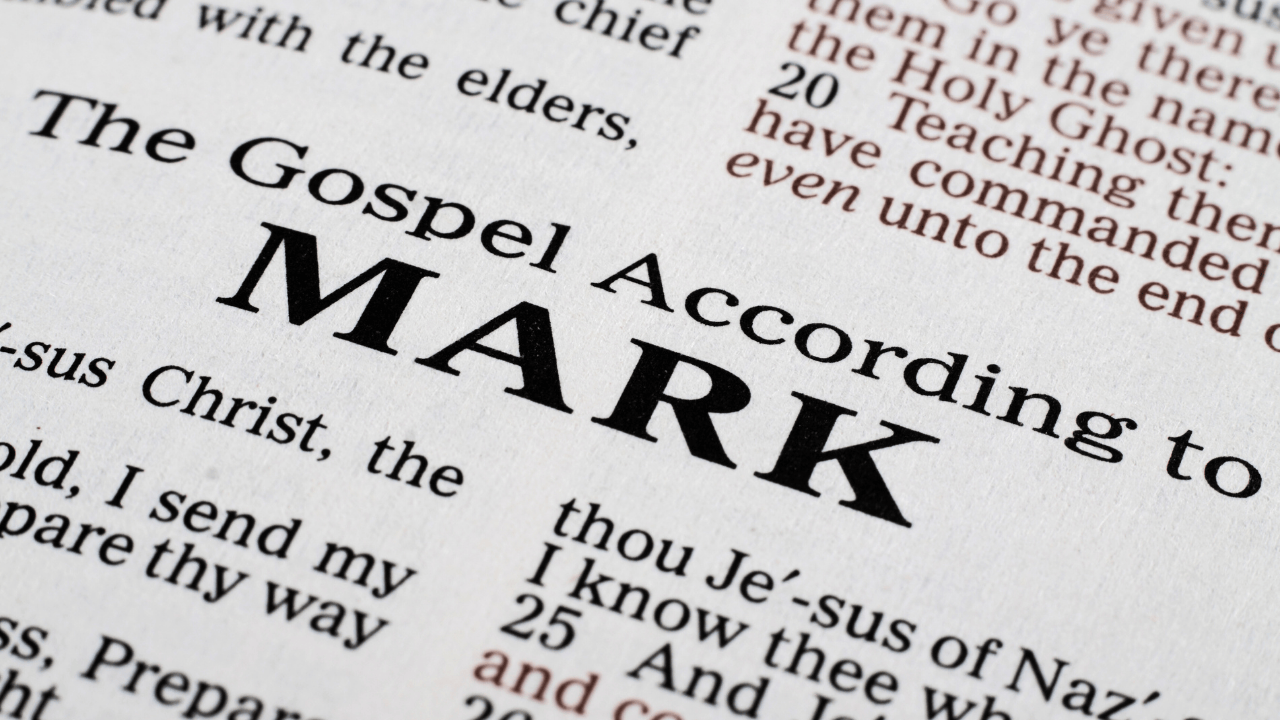
Mark's gospel is fast. He jumps right into what is central to the good news, the gospel, of Jesus. John the Baptist comes, and he is great, but his whole message is one of preparation for the greater one who would come after, Jesus. And everything John says has to do with this comparison of just how great Jesus is. We also see this through the writer of the gospel, Mark, and the apostle who was behind Mark's writing, Peter. Then we quickly move to Jesus' baptism by John and we see here the other central idea of the gospel, that this great one who has come humbles himself to associate and own the sins of humanity. Here is good news!


